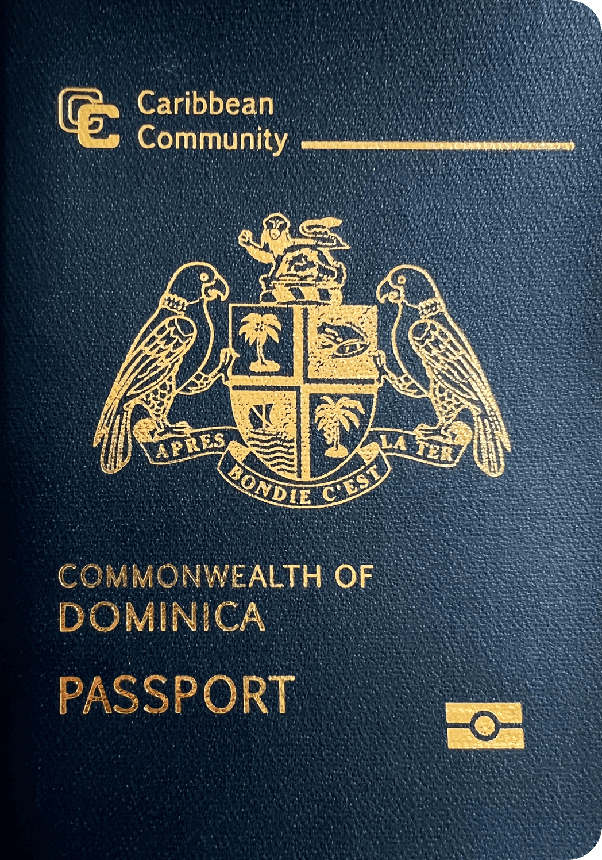Country Details
Dominica, officially known as the Commonwealth of Dominica, is a small island nation located in the Caribbean Sea. Here are some important facts about Dominica:
- Geographical Features: Dominica is known for its stunning natural beauty and is often referred to as the "Nature Isle of the Caribbean." It is situated between the French overseas territories of Guadeloupe and Martinique. The island is of volcanic origin and boasts lush rainforests, towering mountains, cascading waterfalls, and hot springs. Dominica is also home to the world's second-largest hot spring, called Boiling Lake.
- Biodiversity: Dominica is renowned for its rich biodiversity. The island is home to many rare and endemic plant and animal species. The Morne Trois Pitons National Park, a UNESCO World Heritage Site, protects a significant portion of Dominica's natural wonders, including the Boiling Lake and Trafalgar Falls. The island's vibrant marine life makes it a popular destination for diving and snorkeling enthusiasts.
- Citizenship by Investment Program: Dominica operates a successful Citizenship by Investment Program (CIP), which allows foreign investors to obtain Dominican citizenship in exchange for making a qualifying investment in the country. This program has contributed significantly to the island's economic growth, attracting investments in sectors like tourism, real estate, and agriculture.
- Resilience to Natural Disasters: Dominica has faced numerous natural disasters, including hurricanes and tropical storms. In 2017, the island was severely impacted by Hurricane Maria, which caused widespread devastation. Despite these challenges, Dominica has shown remarkable resilience and has been actively implementing measures to strengthen its infrastructure and build a more climate-resilient nation.
- Cultural Heritage: Dominica has a diverse cultural heritage influenced by African, European, and indigenous Kalinago traditions. The island celebrates various festivals and events throughout the year, such as the World Creole Music Festival and the Carnival. Dominica is also known for its traditional music, including the infectious rhythms of bouyon and calypso, and its vibrant arts and crafts scene.
These are just a few important facts about Dominica, a captivating Caribbean nation that offers a unique blend of natural beauty, cultural heritage, and investment opportunities.
Immigration Details
different ways to immigrate to Dominica and the specific requirements, timeframes, estimated fees, and supporting documents for each category:
- Donation Option (Citizenship by Investment Program):
- Timeframe: The processing time for citizenship applications typically ranges from 3 to 6 months.
- Estimated Fees: The minimum investment required for the Economic Diversification Fund (EDF) donation option is $100,000. Additional fees include due diligence fees, government fees, and other associated costs.
- Supporting Documents: Valid passport, birth certificate, medical certificates, financial statements, police clearance certificate, and other supporting documents as required.
- Established Company:
- Timeframe: The time required to establish a company can vary based on various factors such as the complexity of the business and compliance requirements. It typically ranges from a few weeks to a few months.
- Estimated Fees: The fees for registering a company in Dominica vary depending on the type of company and services required. These fees can include company registration fees, legal fees, and other associated costs. The exact fees can be obtained from the Companies and Intellectual Property Office (CIPO) in Dominica.
- Supporting Documents: Business plan, proof of financial resources, identification documents of directors/shareholders, bank reference letters, and other documents as required by the CIPO.
- Investment in Real Estate:
- Timeframe: The processing time for real estate investment applications can vary depending on the specific property and legal processes involved. It typically ranges from a few weeks to a few months.
- Estimated Fees: The minimum investment required for real estate under the Citizenship by Investment Program is $200,000. Additional fees may include due diligence fees, government fees, legal fees, and other associated costs.
- Supporting Documents: Valid passport, proof of real estate purchase, property valuation, bank reference letters, police clearance certificate, and other supporting documents as required.
- Work Permit:
- Timeframe: The processing time for work permits in Dominica can vary, but it typically takes a few months.
- Estimated Fees: The fees for work permits depend on the type and duration of the permit. The exact fees can be obtained from the Dominica Labour Division or the Ministry of National Security.
- Supporting Documents: Valid passport, job offer or employment contract, educational and professional qualifications, police clearance certificate, proof of financial means, and other relevant documents.
- Study:
- Timeframe: The time required to apply for a student visa and enroll in a study program can vary depending on the specific institution and program. It typically ranges from a few weeks to a few months.
- Estimated Fees: The fees for student visas and tuition fees vary depending on the educational institution and program. It is advisable to contact the educational institution or the Dominica embassy/consulate in your country for the most accurate fee information.
- Supporting Documents: Valid passport, acceptance letter from the educational institution, proof of financial means to cover tuition and living expenses, academic transcripts, and other supporting documents as required.
Separate pathways to obtain citizenship or residency:
- Citizenship: The donation option or the real estate investment option under the Citizenship by Investment Program (CIP) can lead to citizenship and a Dominican passport.
- Residency: Establishing a company, obtaining a work permit, or studying in Dominica can provide residency status.
It's important to note that capital requirements for company registration and the need to employ local individuals can vary based on the specific business type and industry. The duration to obtain residency after company establishment or work permit approval can also vary.
As the immigration regulations and requirements may change over time, I recommend consulting official sources such as the Dominica government websites, authorized agents, educational institutions


Add a review